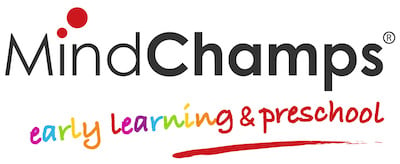Hi, I’m Lisa and I’m a screen addict…and so are my kids! Most of us would be perfect candidates for SAA (screen addicts anonymous).
How many minutes can you go before picking up your phone? One minute? 10 seconds? For me, after about 5 minutes not looking at my phone, I start getting a bit edgy. My kids are young but they’re already tech-experts – navigating through ABC Kids and the Playschool app like pros.
Concerning
With an increased number of hours spent on a screen, it’s no wonder that our kids’ reading is suffering. Australia has dismal literacy rates, ranking number 21 globally according to Progress in International Reading Literacy Study (PISA) literacy results. That means about one in five Aussie children are not meeting international benchmarks for reading.
You can’t deny that those stats are really worrying, especially since literacy is a key component of all academic success. I have this sprouting fear that my children won’t be adequately prepared for what lies ahead, if I don’t make some changes now.
Now is the Time!
The good news is that it’s not too late. If you’ve got kids under 5, then now is the time to turn off the screen and turn the pages of a book instead. I’m not saying I’ll be throwing my phones and iPads out the window. But it does mean, I’ll be spending more quality time boosting my kids’ literacy levels and ultimately changing their lives for the better.
I had a fascinating chat with David Chiem, the Founder, CEO and Executive Chairman of MindChamps International, an innovative early learning and Pre-school network.
David is passionate about improving education and literacy standards. He shares research which shows that learning habits and attitudes that are formed in the early years have a key influence on future success. MindChamps believes that the answer to elevating our literacy rates is to nurture an enthusiastic ‘learning mindset’ in every child, during those critical early years. This is best done through the world of books.
You Don’t Have to Be an Expert
The great thing is that you don’t have to be a teacher or an expert in neuroscience or early-childhood studies, to instil a love of reading into your child.
In the early years, children learn best within an environment conducive to play and a child will forge a life-long enjoyment of reading as long as they are having fun while doing it.
In order to get your child passionate about reading, MindChamps has shared a few key tips that all parents can try.
1) Read WITH Your Child
Read with your child (not to your child) for at least 30 minutes every day. It’s tempting to just read the words of a book to your child but experts suggest that the true value of reading lies in reading with your child in a way that encourages them to put themselves in the story. This brings the story to life and becomes a fun, vibrant experiences for your child. Bedtime is an ideal time to read, as it relaxes kids into sleep, but don’t feel you have to limit yourself to just one time of the day.
2) Make Books Part of Your Life Together
Try and make books an integral pattern in the fabric of your lives together, so that story-time becomes fun time for your child. Make the story a ‘shared event’ – a positive emotional and tactile experience, in which spoken and printed words are inextricably involved. The child who enthusiastically runs to the bookshelf and brings back a favourite book to share is a committed reader long before they can ‘decode’ the words on the page.
3) It Doesn’t Only Have to Be Books
Don’t limit yourself to just reading books. Words – spoken, recited, sung, whispered – are important in developing your child’s competence in, and love of, language. A child who has regularly experienced face-to-face conversation, expressive story-telling (or story-reading) and the rhythm and rhyme of recited poetry – who has sat with a parent and shared the feel and the visual excitement of a hundred (or a thousand) books, and asked and answered questions about the characters who live in them – that child will inevitably grow to become a reader.
4) Words Are All Around Us
Find the words which exist everywhere in everyday life – on signs, in songs, at the bus-stop or the supermarket, on shopfronts and billboards. Share the language of pictures – ask questions about them or point out interesting features. Assign descriptive names to unknown things – or people.
5) Be Present
Make sure that when you and your kids are together, you are truly present. Try and resist looking at your phone and focus your attention on your child. People managed to exist for thousands of years without being permanently ‘on-line’, so neither you, nor your child, are required to have an umbilical connection to the screen. You should enjoy quality analogue time with the most important ‘friend’ you have.
MindChamps PreSchools offer a programme which nurtures the love of reading and instils pre-literacy skills within our little ones, without boring drill and rote-learning, in the years before they arrive in school.
The team at Mouths of Mums is working with MindChamps Early Learning and PreSchool Centres to bring you this article. After decades of research into early learning pedagogy, neuroscience and child psychology, and drawing upon the engagement techniques of theatre, MindChamps has crafted a new approach to early learning that is designed to equip the children of today with the foundations for future success.

What are your favourite books to read with your child? Tell us in the comments below.





















10:16 am
2:54 pm
10:24 pm
7:28 pm
10:53 am
3:42 pm
10:50 am
8:30 am
7:02 pm
3:45 pm
11:23 am
8:05 am
10:27 pm
11:10 am
7:48 am
4:24 pm
10:15 am
4:18 am
2:37 am
8:53 pm
- 1
- 2
- 3
- »
Post a commentTo post a review/comment please join us or login so we can allocate your points.